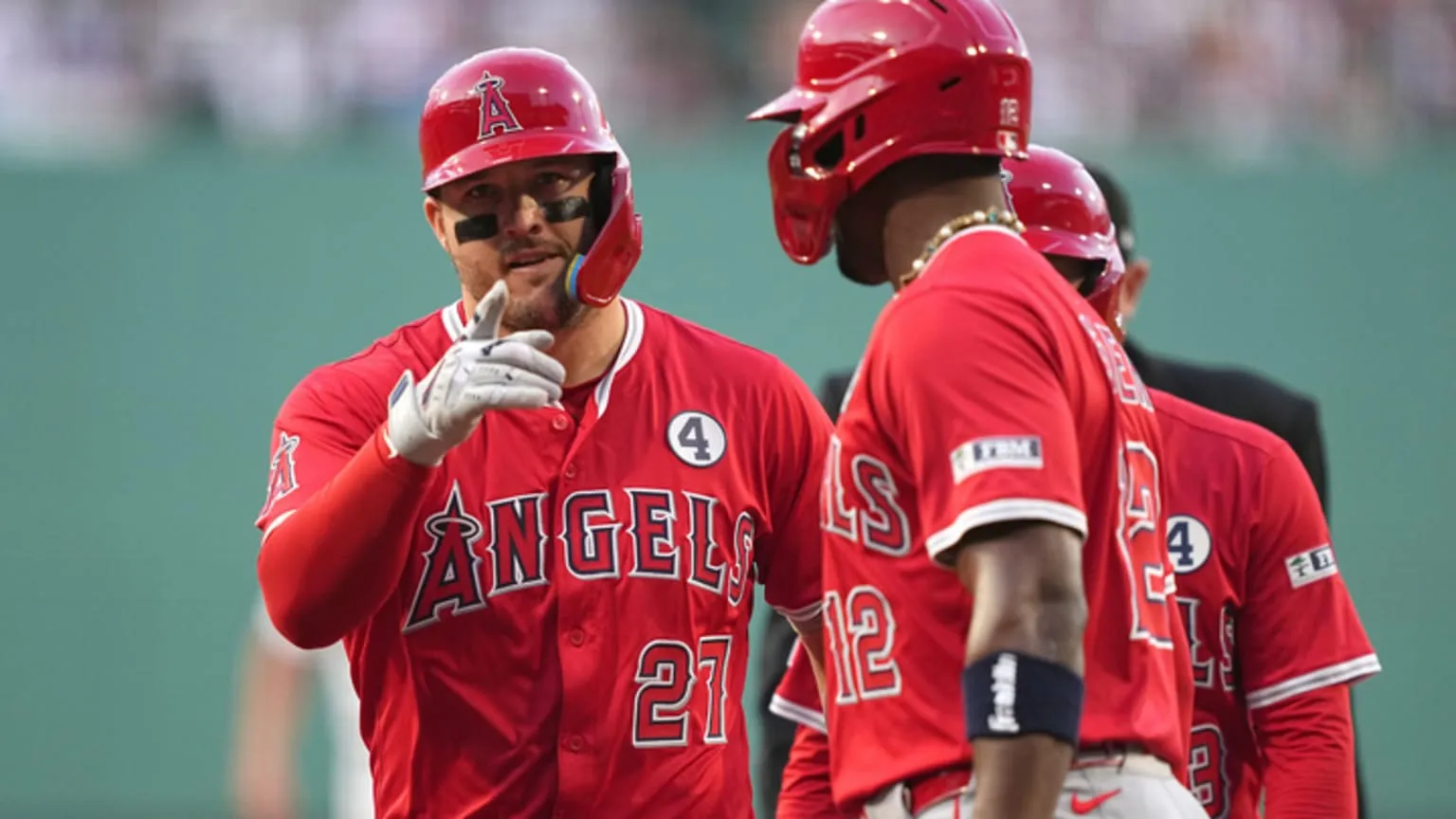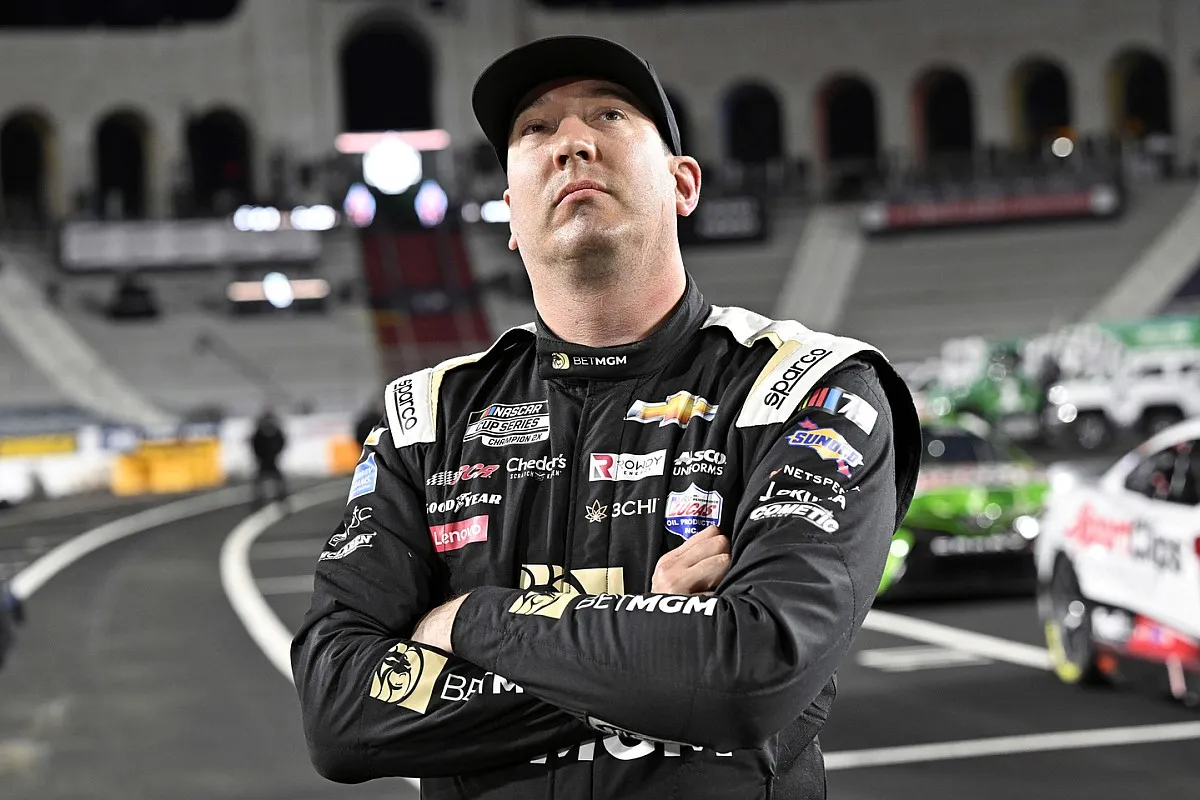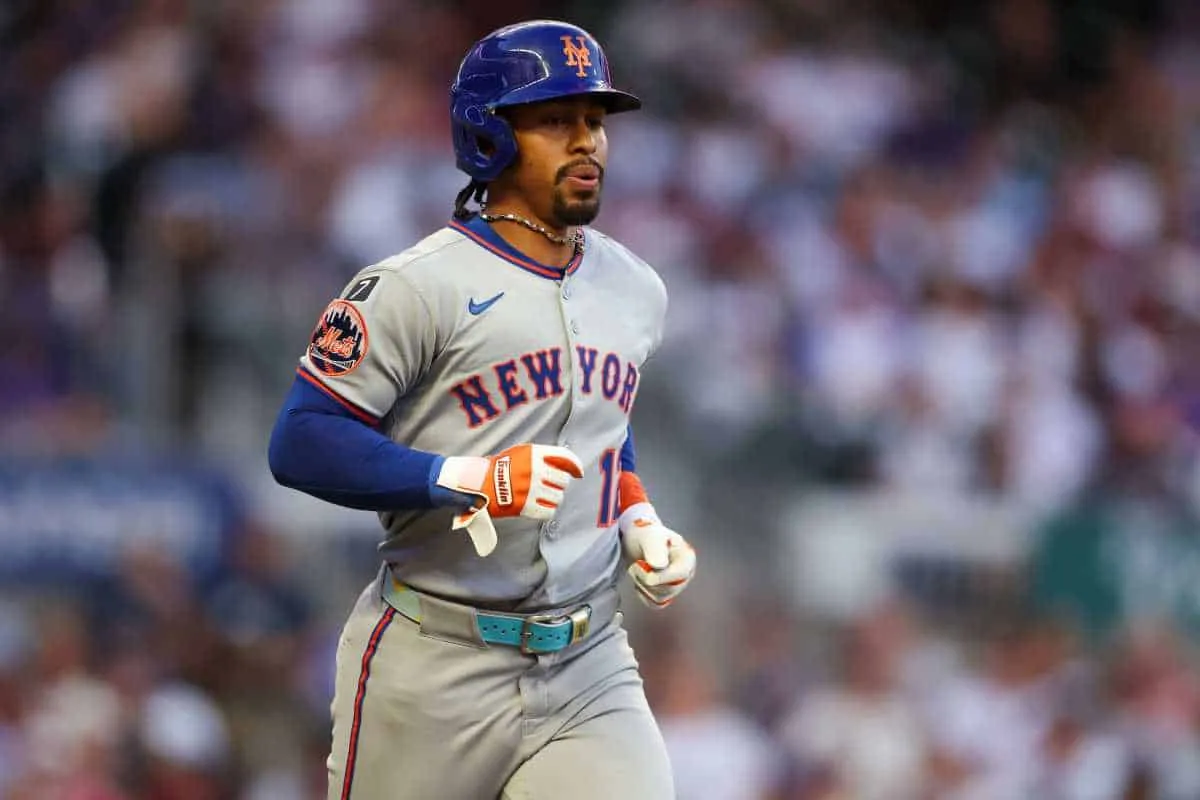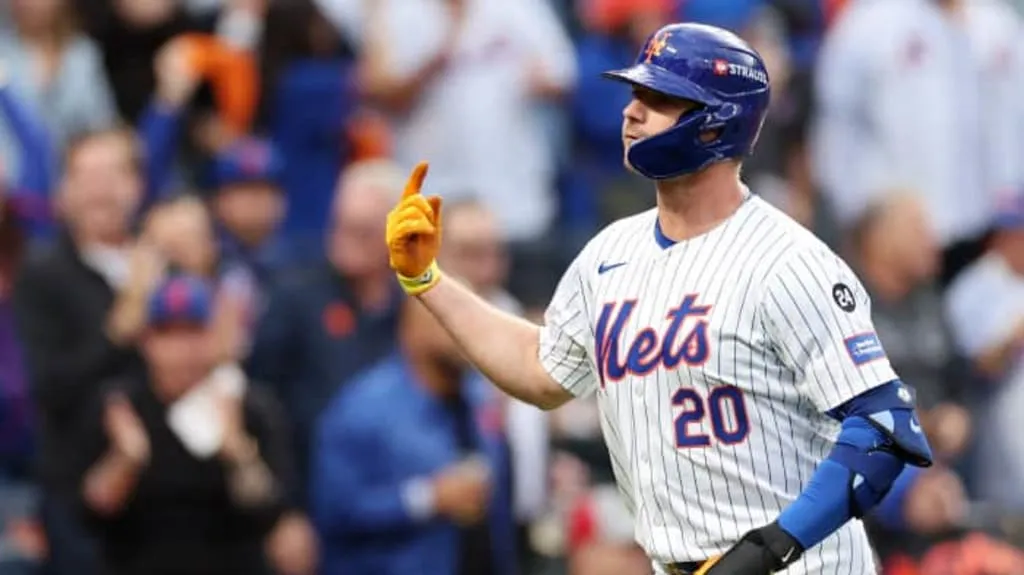

He’s One of the Highest Paid in Baseball — So Why Is Mike Trout Missing from the 2025 All-Star Lineup?
The Unthinkable Omission: Mike Trout Left Off the All-Star Roster
For over a decade, Mike Trout has been a fixture in the MLB All-Star Game, often considered the face of baseball itself. With a career decorated by three American League MVP awards, multiple Silver Sluggers, and a legacy of elite consistency, Trout’s name is usually one of the first penciled into the midseason classic. That’s why the 2025 All-Star Game has left fans, analysts, and even fellow players stunned — because Mike Trout won’t be playing.

The absence of one of baseball’s highest-paid superstars, who is currently earning over $37 million a year, raises a pressing question: How did this happen? Is it due to injury, declining performance, or perhaps something deeper rooted in the evolution of both Trout’s career and the league itself?
A Career Defined by Brilliance — and Burdens
To understand the magnitude of Trout’s absence, one must first understand who Mike Trout is to baseball. Since his breakout season in 2012, he’s consistently been ranked among the top players in Wins Above Replacement (WAR). Scouts and fans alike have long praised his five-tool skillset — a rare blend of speed, power, defensive prowess, plate discipline, and baseball IQ.
Yet, for all his greatness, Trout has carried a burden: a career largely spent on an underperforming Los Angeles Angels roster. Despite his historic stats, the Angels have made only one postseason appearance during Trout’s tenure, and that ended in a swift sweep. With each passing year, even as Trout continued to deliver individually, the lack of team success slowly shifted the spotlight elsewhere.
In 2025, that shift has become more dramatic — and, some might say, unfair.
The Lingering Shadow of Injuries
One cannot discuss Mike Trout’s 2025 All-Star absence without acknowledging the recurring injuries that have plagued his recent seasons. While Trout returned to the lineup earlier this year after a series of lower back and calf issues, many analysts have pointed out that he’s not quite the same player he once was.
His bat speed is slightly down. His stolen base attempts are nearly nonexistent. His once-elite range in center field has noticeably narrowed, prompting a shift to a corner outfield position more often. While his statistical output remains respectable, it no longer towers above the field as it once did.
This reality has led some to wonder whether fans and fellow players — both responsible for All-Star voting — have begun to see Trout less as the untouchable superstar and more as a veteran with greatness in his rearview mirror.
The Rise of a New Generation
Baseball in 2025 is no longer the game it was when Trout burst onto the scene. Young, dynamic players have taken the league by storm. Stars like Julio Rodríguez, Bobby Witt Jr., Elly De La Cruz, and Jackson Holliday have brought electric energy, viral moments, and fan bases hungry for fresh narratives.
These players not only deliver on the field but thrive in the social media era in ways Trout never has. Known for his reserved, no-nonsense persona, Trout has never actively cultivated the kind of online presence that today’s All-Star voting seems to reward. In a world where highlight reels and Instagram followers increasingly dictate popularity, Trout’s quiet consistency can feel less exciting than a bat flip or viral sprint speed clip.
This generational turnover isn’t just anecdotal — it’s visible in the 2025 All-Star rosters, which feature more players under 27 than ever before. It’s not that Trout is disliked or forgotten; rather, he may simply be overlooked in a league racing toward the future.
Fan Voting and Changing Metrics of Stardom
The MLB All-Star selection process remains a blend of fan voting, player ballots, and managerial decisions, each with their own biases and blind spots. In recent years, the fan vote has leaned heavily toward teams with strong online campaigns and larger media footprints. Trout, who plays on the perpetually underachieving Angels, lacks both.
Even his personal statistics, while still strong, no longer scream “automatic All-Star.” As of June 2025, Trout is batting a modest .256 with 14 home runs and a .794 OPS. These are solid numbers by league standards, but they’re not the jaw-dropping figures that demand a roster spot, especially in an era where younger players are hitting .310 with 25 home runs before the break.
Moreover, with advanced analytics becoming a bigger part of fan consciousness, some of Trout’s hidden value — plate discipline, baserunning efficiency, defensive positioning — is now being measured against newer players who do the same things but also bring more “flash.”
A Choice — Or a Statement?
Some sources close to the Angels clubhouse suggest that Trout’s absence from the All-Star Game may not be entirely involuntary. There’s speculation that, despite being eligible as a reserve or injury replacement, he declined an invitation, citing a desire to rest and focus on the second half of the season.
If true, this would be in line with the pragmatic, team-first mentality that has defined Trout’s approach throughout his career. Rather than chase headlines or accolades, he may be choosing to prioritize his long-term health and team commitments. But it also highlights how much the meaning of the All-Star Game has evolved. For many veterans, it’s now seen less as an honor and more as an obligation — one that interferes with recovery and rhythm.

It also raises an uncomfortable truth: maybe Trout doesn’t need the All-Star Game anymore, and perhaps, more pointedly, the All-Star Game no longer needs him.
What Trout’s Absence Tells Us About Baseball’s Direction
In the broader picture, Mike Trout missing the All-Star Game in 2025 is not just about one player. It symbolizes the changing tides of the sport. It reflects a league increasingly driven by youth, marketability, and moments, rather than career résumé or quiet dominance.
It also underscores a tension that baseball continues to grapple with: how to honor its legends while still making room for new icons. Trout’s omission feels jarring precisely because he represents an era where consistency, humility, and excellence were the gold standard. Today, the currency of stardom has shifted. Charisma is now a stat, and TikTok views often carry as much weight as RBIs.
That’s not necessarily a bad thing. Sports must evolve to survive. But for those who watched Trout redefine greatness year after year, his exclusion stings.
Still a Legend, With More Chapters to Write
Let’s be clear: Mike Trout is not finished. He remains one of the best players in baseball and could very well have a dominant second half that silences doubters. If the Angels can somehow string together a competitive run, Trout’s leadership and performance could become one of the league’s most compelling stories by October.
The All-Star Game is a midseason snapshot, not a final judgment. And for a player of Trout’s caliber, legacy isn’t built in July — it’s defined by decades of excellence, respect from peers, and ultimately, the Hall of Fame plaque that awaits him.
Still, in this moment, Trout’s absence forces the sport — and its fans — to pause. To reflect. To ask hard questions about what we value, who we celebrate, and how the meaning of greatness continues to evolve.
In the end, perhaps Mike Trout missing the 2025 All-Star Game says less about him and more about us — and the game we love as it sprints, inevitably, into a future Trout helped build, even if he’s not always front and center anymore.


















